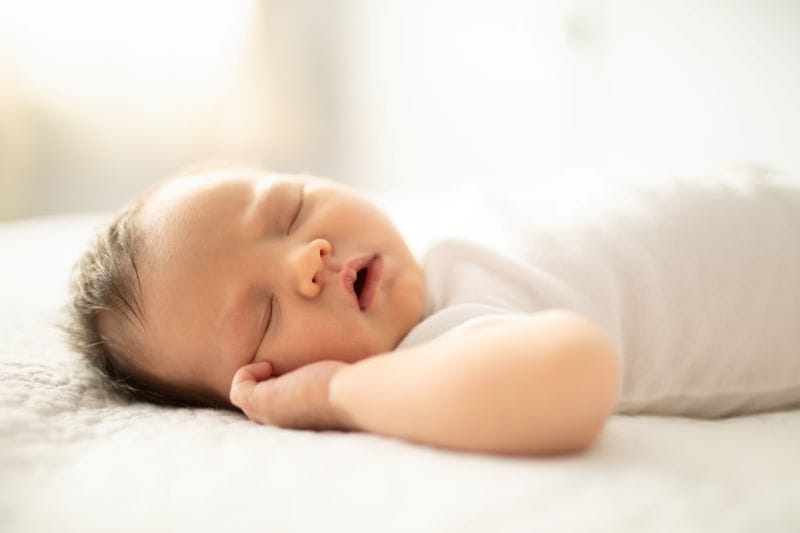Safety First: For Baby Safety Month, Check Out These Tips From a BayCare Kids Expert
When you become parents, nothing becomes more important than the safety and well-being of your child.
With September being National Baby Safety Month, it’s a good time for a primer (or a refresher) for first-time parents or second-time-rounders. It’s also good to be aware of some of these basic tips if you’re a grandparent, family member or friend with a beloved little one in your life.
Here’s what BayCare Kids Wellness and Safey Specialist Gina Baez has to share about best ways to keep your baby safe while sleeping, on the road and at home.
Safe at Home
Before bringing baby home, go room by room and check that the house is a safe environment for baby:
- Cover all electrical outlets.
- Secure heavy furniture to the walls.
- Get down on ground level and look for choking hazards on. Hair barrettes, toy components … you’d be surprised at what you might find lying under a couch or table.
- Store household cleaning supplies, medications and vitamins in locked areas.
- Make sure cribs are not by blinds; the cords can be choking hazards.
- Close toilet seats and empty any potted plants, buckets or any containers that have standing water.
- Install a pool fence, door alarms and baby gates at both the bottom and top of the stairs.
Safe While Sleeping
With sleep-related infant deaths up to 14 in Hillsborough County this year by August, it’s crucial that parents know the basics of sleep safety: Babies should sleep alone on their back and in a crib.
A crib, bassinet or pack and play are the safest options for baby to sleep in. A Boppy pillow is great for breastfeeding, but if left alone propped up on one, baby can easily slip down and come to a position in which their airway is blocked.
Swings and bouncers are fun but not designed to hold baby’s head up the right way while she sleeps. And while baby might fall asleep in the car seat while you’re driving, once you have reached your destination, take the baby out and put her flat on her back because the car seat outside its base is not at the correct angle for sleep. “Think of their airway as a straw,” explains Baez, “If it bends too far, it shuts”
The mattress of the crib, bassinet or pack and play in which baby is sleeping should be covered with a tight fitted sheet and nothing else – no blankets, bumpers or stuffed animals, all of which could be suffocation hazards. Instead of a blanket, consider a sleep sack that keeps baby warm and snug without the danger of suffocation.
If you want to co-sleep for bonding purposes, share a room, not a bed. Baby can stay safely in his crib and be close enough for nighttime cuddles without the dangers of sleeping in mom or dad’s bed with them.
Safe in the Car
The number one tip for keeping baby safe in the car is to purchase the correct car seat. It needs to be appropriate for the height and weight of the baby. While the infant car seats come with the benefit of the base, convertible car seats are also fine.
Once you have the right car seat, make sure it is installed properly at the correct angle. Chest clips should be at armpit level and harness belts should be tight at the shoulder; you shouldn’t be able to pinch any slack.
If you want to confirm that you’ve done this right, BayCare Kids Wellness and Safety Center has certified car seat technicians who will inspect and educate. Visit stjosephschildrens.org for details.
Make sure that baby has only soft toys, not hard ones, because these can become projectiles in the case of a collision. For this same reason, avoid those newborn mirrors that parents often strap in front of babies. These also tend to distract the driver.
Don’t move the baby up from rear facing to forward facing until they have maxed out either the height or weight requirements of the one that they are currently using.
Related Stories:
*Presented by BayCare | iStock-1198320942 | Originally published in the September 2024 issue of Tampa Bay Parenting Magazine.


